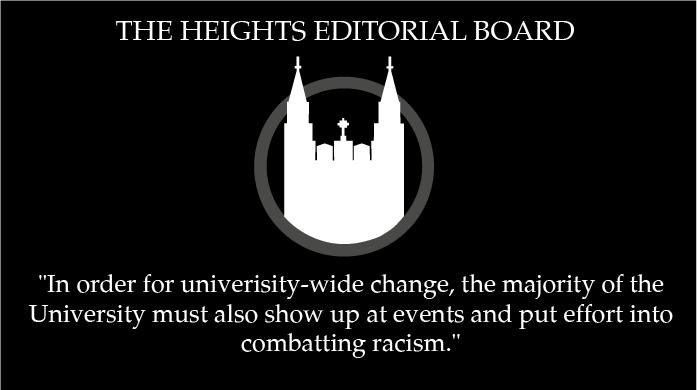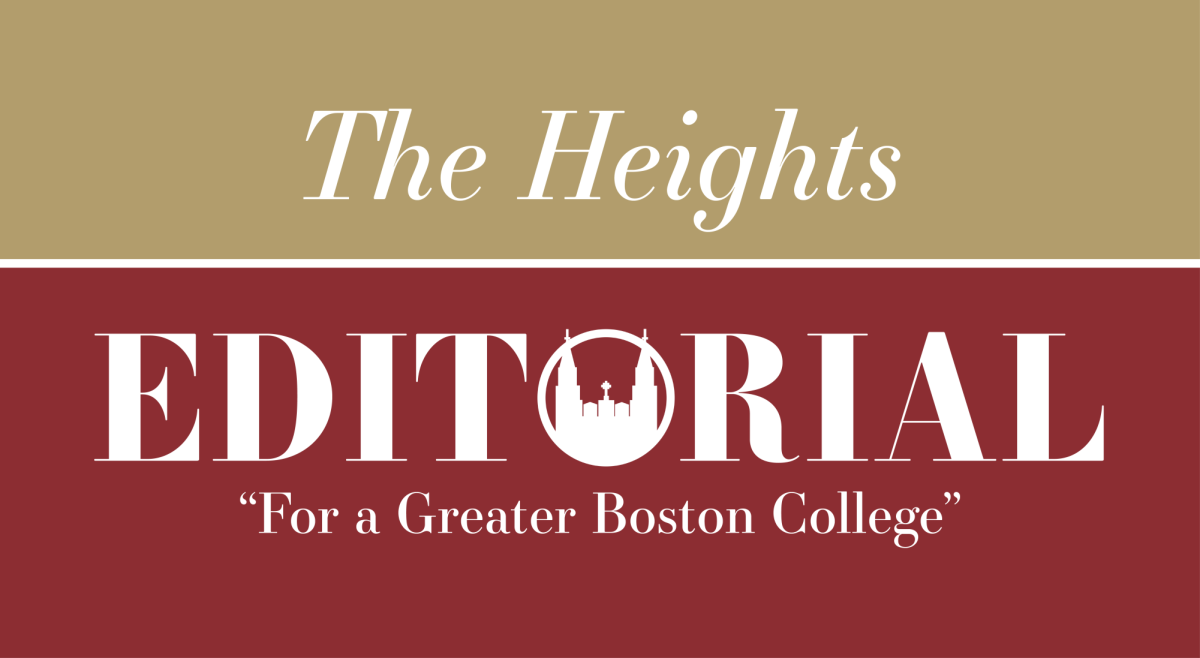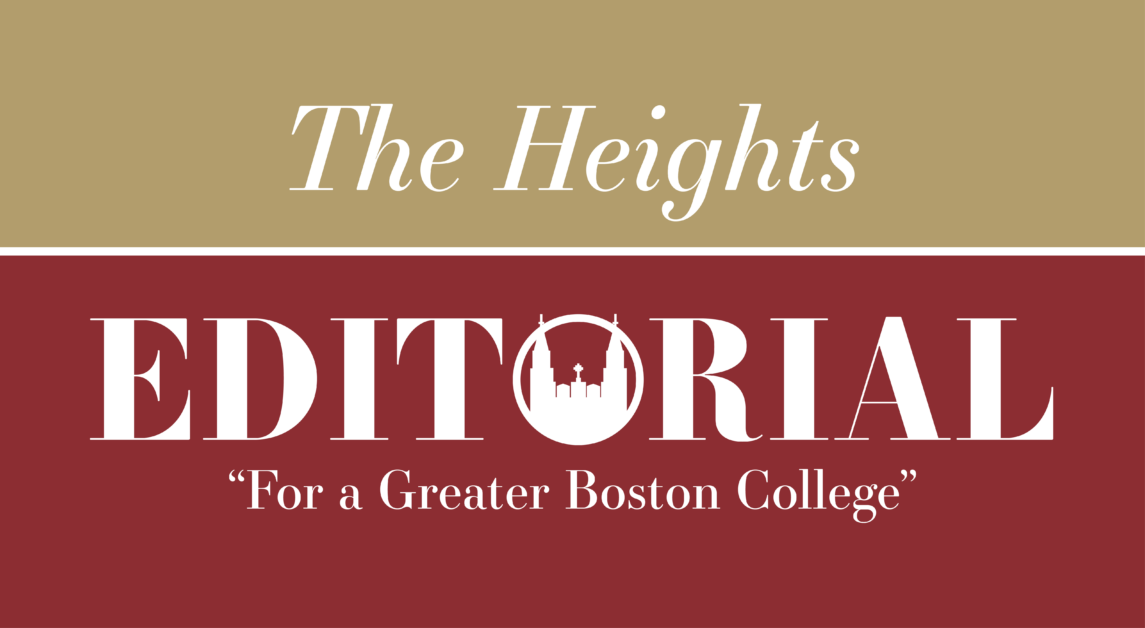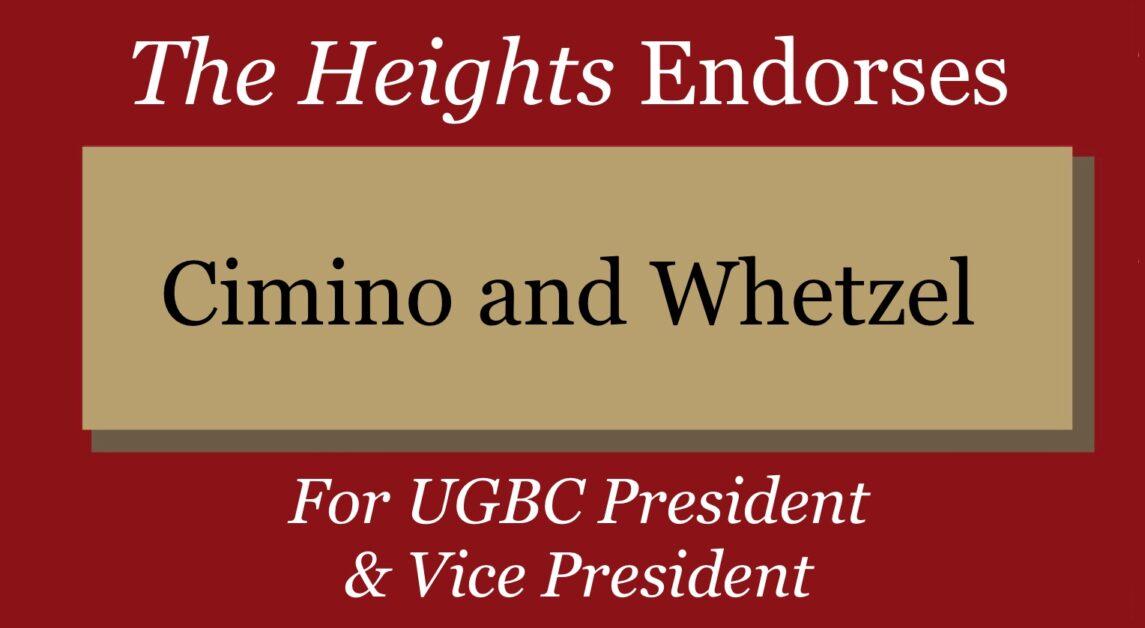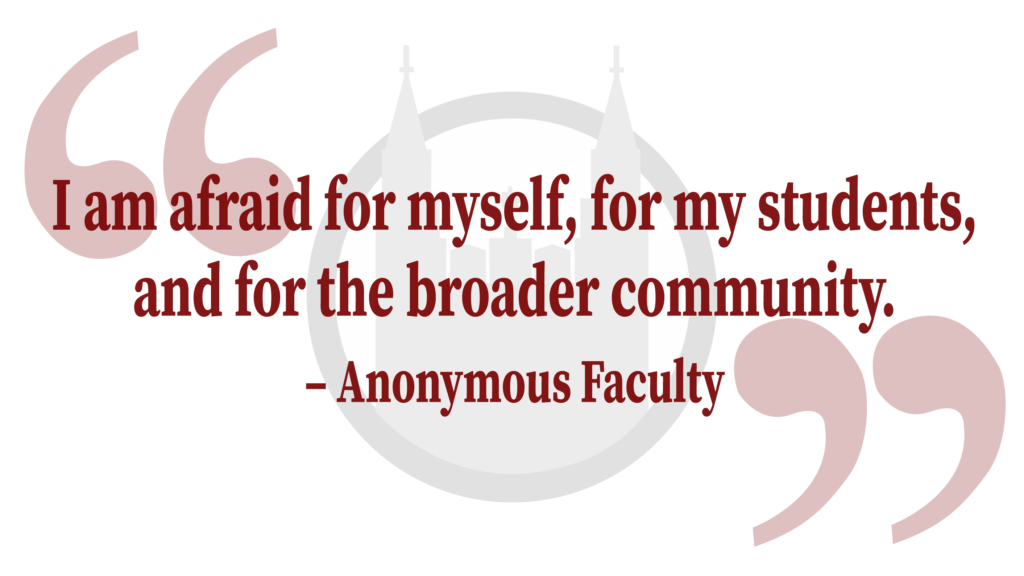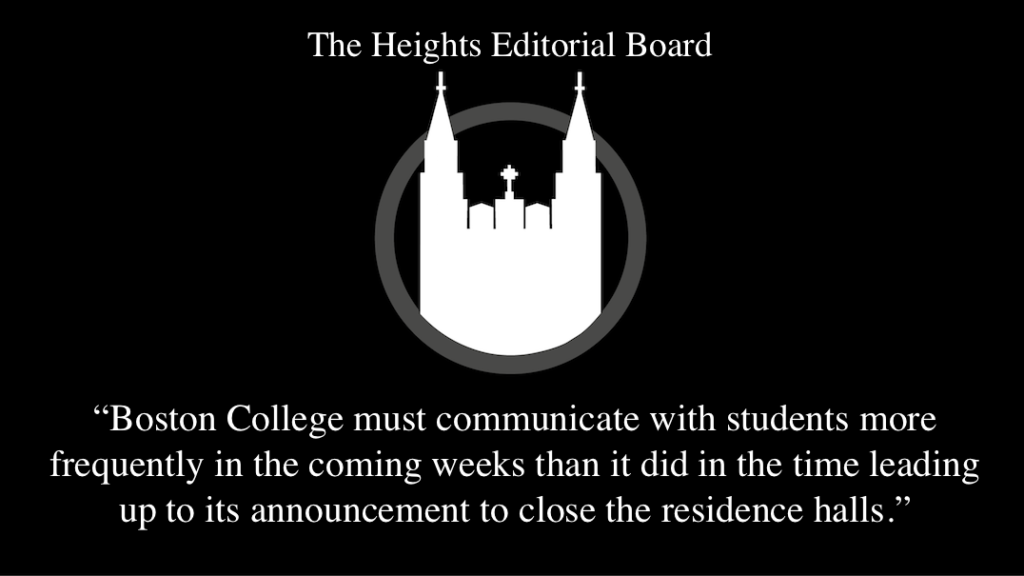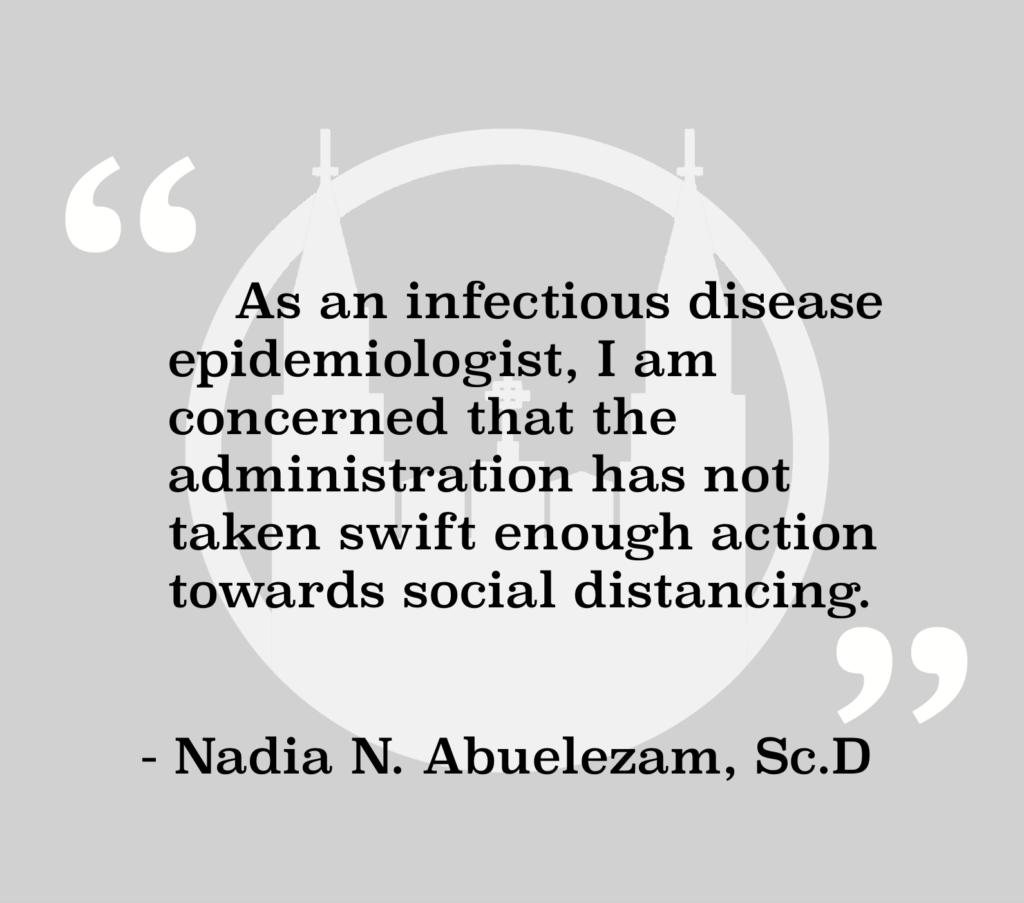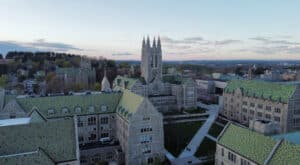After Welch Hall was vandalized with racist graffiti last semester, the Undergraduate Government of Boston College and interim Vice President of Student Affairs Joy Moore hosted a community gathering for students to ask questions and voice concerns to administrators. UGBC also announced that it would host a series of town halls in collaboration with Student Affairs in the spring to address racism on campus. So far, in place of these town halls, UGBC and Student Affairs hosted student-administrator forums open to a smaller number of students this semester.
The University has put noticeably less effort into the meetings: The forum on Wednesday featured less prominent administrators than the previous student-administrator meeting in January, and approximately 30 attended students, below the maximum attendance number of 50.
Wednesday marked the first true open student-administrator forum, which was attended by approximately 30 students, a drastic difference from the approximately 700 who attended the town hall in December. The Wednesday forum required RSVPs and was advertised through UGBC emails and on the organization’s Facebook page. The drop in attendance is concerning given that just over two months had passed between the December gathering and the most recent forum.
If the BC community wants actual change, it must show up for events such as these gatherings. The students directly affected by racism on campus make up a minority of the student population. They should not comprise the majority of attendees for each meeting. In order for there to be University-wide change, more members of the student population must also show up at events that address issues of diversity and inclusion and put effort into combatting racism. Clubs and individual students were happy to post statements on social media in December. For a large portion of the BC community, that passion to challenge racism now seems mostly absent.
Students seem to have forgotten or moved on from the hate crime that occurred less than three months ago.
Students do not have to simply stand by and watch. Phil McHugh, CSOM ’19, created the #RaceAgainstRacism, which challenged groups on campus, including The Heights, to publicize two short-term and one long-term actionable step toward fighting anti-blackness on campus within 72 hours of being challenged.
Students are not the only group that must continue to take action. The University is also culpable in the decrease in attendance and overall decline of interest in battling racism at BC. The first student-administrator gathering featured handpicked student leaders in attendance, leaving out any students who would have liked the opportunity to talk with BC’s Executive Vice President Michael Lochhead. The second gathering was open to the community, but advertising was limited and not broadcast by members of the administration—only through UGBC.
BC’s scheduling of these events is also questionable. The decline in student involvement in meetings that students themselves asked for is worrying. The most recent student-administrator forum was held at the peak of midterms season. While choosing between studying for a midterm worth a significant part of an overall grade and attending the discussion was not a fair choice for BC to ask students to make, it does not mean students don’t have a role in the issue.
If the BC community is going to show initiative in its quest to establish a more welcoming campus defined by opportunity for all rather than those in the majority, students need to be willing to take an hour out of their day to enter into dialogue with the administration about the issues plaguing them, even if it’s a busy time of year.
The second student-administrator forum, which was under its maximum capacity of 50 students, featured administrators such as Interim Vice President of Student Affairs Joy Moore, Vice Provost for Faculties Billy Soo and Vice Provost for Undergraduate Affairs Akua Sarr. These administrators, however, are less well known to the general student body than the administrators who attended the first. Moore, Executive Vice President Michael Lochhead, Dean of Students Tom Mogan, and Rev. Michael Davidson, S.J., director of the Thea Bowman AHANA and Intercultural Center all were present at the first student-administrator forum that had only student leaders in attendance.
The passion for change that was apparent in December has largely vanished. If students, faculty, and the University actually wish to combat racism, we must remember the event in December and be careful not to push the issue of racism aside.

